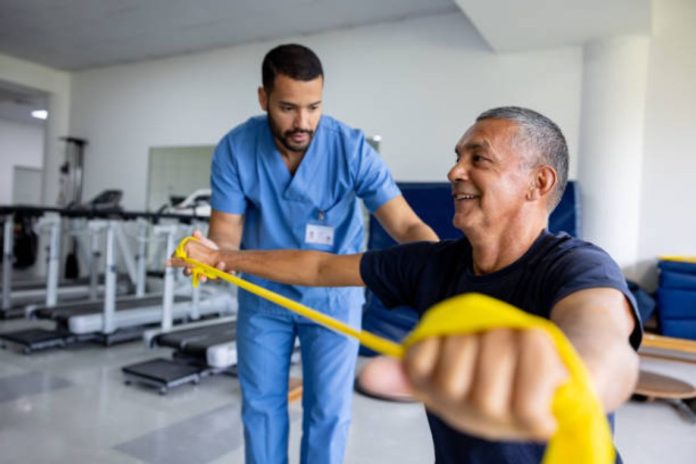Selecting the right rehabilitation center is a critical decision that can significantly influence the outcome of your recovery journey. Whether you’re seeking help for addiction, recovering from an injury, or managing a chronic illness, the right rehab center can provide the support and resources necessary for a successful and sustainable recovery. Here are the key factors to consider when choosing a rehabilitation center.
1. Accreditation and Licensing
The first step in choosing a rehabilitation center is to ensure that it is accredited and licensed by relevant health authorities. Accreditation from organizations such as The Joint Commission or the Commission on Accreditation of Rehabilitation Facilities (CARF) ensures that the facility meets high standards of care and safety. Licensing ensures that the center complies with state and federal regulations, providing you with a reliable and trustworthy environment for recovery.
2. Comprehensive Care Services
A rehabilitation center that offers comprehensive care can address all aspects of your health and well-being. Look for centers that provide a range of services, including medical care, physical therapy, mental health support, and social services. Comprehensive care ensures that all your needs are met, from physical rehabilitation to psychological and emotional support.
3. Qualified and Experienced Staff
The qualifications and experience of the staff are crucial factors in the quality of care you will receive. Ensure that the center employs licensed medical professionals, including doctors, nurses, therapists, and counselors with specialized training in rehabilitation. Experienced staff can provide personalized care and develop effective treatment plans tailored to your specific needs.
4. Individualized Treatment Plans
Every person’s recovery journey is unique, and individualized treatment plans are essential for effective rehabilitation. Choose a center that offers personalized assessments and creates tailored treatment plans based on your medical history, current condition, and personal goals. An individualized approach ensures that you receive the specific care and support you need to achieve your recovery objectives.
5. Therapies and Treatment Modalities
Different rehabilitation centers offer various therapies and treatment modalities. It’s important to choose a center that provides the therapies that align with your needs. Common treatments include:
- Physical Therapy: For recovery from injuries or surgeries.
- Occupational Therapy: To help you regain daily living skills.
- Behavioral Therapy: For addressing mental health and addiction issues.
- Holistic Therapies: Such as yoga, meditation, and acupuncture.
Ensure that the center offers a comprehensive range of therapies to address all aspects of your recovery.
6. Family Involvement and Support
Family involvement can play a significant role in your recovery process. Rehabilitation centers that encourage family participation in therapy sessions and support groups can provide a more supportive environment for recovery. Family therapy helps improve communication, resolve conflicts, and build a strong support system for ongoing recovery.
7. Facility Amenities and Environment
The physical environment of the rehabilitation center can impact your comfort and motivation during recovery. Visit potential centers to assess their facilities, cleanliness, and overall atmosphere. Look for amenities such as private or semi-private rooms, recreational areas, and access to nature or outdoor spaces. A comfortable and supportive environment can enhance your overall recovery experience.
8. Cost and Insurance Coverage
Cost is an important consideration when choosing a rehabilitation center. Inquire about the cost of treatment and what is included in the fees. Additionally, check whether the center accepts your insurance plan and what portion of the costs will be covered. Some centers offer financial assistance or sliding scale fees based on your ability to pay. Understanding the financial aspects will help you plan and manage the costs of your rehabilitation.
9. Aftercare and Support Services
Recovery doesn’t end when you leave the rehabilitation center. Aftercare and support services are crucial for maintaining long-term sobriety and well-being. Look for centers that offer comprehensive aftercare programs, including follow-up appointments, support groups, and continued therapy. A strong aftercare plan can help you transition back to daily life and reduce the risk of relapse.
10. Reviews and Testimonials
Finally, consider the reputation of the rehabilitation center. Read reviews and testimonials from former patients and their families to get an idea of their experiences. Positive feedback and success stories can give you confidence in the center’s ability to provide effective care.
Conclusion
Choosing the right rehabilitation center in Glendale, AZ is a vital step in your recovery journey. By considering factors such as accreditation, comprehensive care, qualified staff, individualized treatment plans, and aftercare services, you can find a center that meets your needs and supports your path to recovery. Taking the time to research and evaluate your options will ensure that you receive the best possible care and achieve a successful and sustainable recovery.









